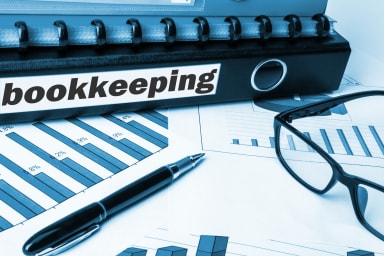High profile computer break-ins and data breaches have brought to light the need for digital forensics experts – professionals who can track down weaknesses in a computer system’s security before criminals discover them. Here are tips for starting a digital forensics business.
Late last year Sony Pictures Entertainment (SPE) made the news when hackers got into the corporation’s computer systems and stole personal information on employees and their families. This information included financial information and e-mails between celebrities that proved embarrassing for them. The incident illustrates the growing need for professionals who can maintain security in private networks and work to prevent such attacks from happening as well as minimizing damage when they do.
Regardless who was behind the hacking of Sony, companies like SPE are in dire need digital forensics experts to help them keep their databases secure.
What Is A Digital Forensics Business?
Digital forensics experts investigate and analyze digital media to discover and recover data stored on digital devices. Many digital forensics professionals assist in solving crimes. However, criminal law is not the only application of this knowledge.
Digital evidence can also be used in civil court. Professionals can serve as expert witnesses. Large corporations employ them to gather evidence on employees who may use computers and other digital media in ways not authorized by company policy. Data recovery is another important application. Companies and individuals that lose information stored on digital devices may hire an expert to recover that data.
✔ Other Fascinating Self-Employment Opportunities In Cybersecurity →
Who Hires Digital Forensics Experts?
There are many types of businesses, government agencies, and even individuals who might require the services of a digital forensics professional. These include:
- Corporations with huge networks and a lot of data to secure
- Small businesses who need to recover lost data or secure information held on digital devices
- Lawyers
- Private investigators
- Law enforcement agencies
- Individuals who need to recover lost data or secure a family network or private business network
- Libraries
As this field grows and becomes more widely known, the applications of digital forensics skills will widen. Salary expectations range from $30,000 for entry-level positions to $80,000 for senior network engineers. A skilled digital forensics analyst running her own business could earn a six figure income if she can grow her client base large enough.
Starting Your Digital Forensics Business
Before you do anything, you’ll need to obtain the proper certifications, education, and experience. That means you’ll need a background in computer science. At least a bachelor’s degree in digital forensics is helpful to get started. Some experts minor in digital forensics or obtain a professional certification in the specialty while obtaining a bachelor’s degree in another field such as law, computer science, criminal justice, or finance. These degrees could help you specialize in a business niche.
After you’ve satisfied the educational requirements, you’ll need to set up your business. Talk to a lawyer and a tax accountant to determine the best business structure for your situation in your state.
✔ Need more information about business entity types? Check out this guide that compares the pros and cons of different business structures →
You’ll also need to acquire the proper insurance. General liability and Errors and Omissions insurance will protect you and your clients. You’ll need to purchase office supplies, equipment, and software to help you run your business. If you are not operating out of your home, you’ll need to rent office space.
✔ Your Guide to Business Insurance →
Take some time to identify the types of customers you want to attract. Do you want to work with financial institutions, lawyers, government agencies? Make a list.
Next, you’ll need to start advertising. Start with a website. It’s a small investment, but your website represents your business from the moment it goes up until you take it down (which should be never if you plan to stay in business). Get some letterhead and business cards with your business name, address, and contact information printed on them and start sending out letters of introduction to businesses you’d like to connect with. Attend a few networking events in your area and start meeting people. Early in your business, shaking hands and introducing yourself is the most important thing you can do to get your digital forensics business kick started.
✔ Learn what you can do to effectively market your business for free →
With some diligence, patience, and people skills, you can grow your new digital forensics business as big as you want. Work as a sole proprietor or hire employees. It’s your business; it’s your call.
Disclaimer: The content on this page is for information purposes only and does not constitute legal, tax, or accounting advice. If you have specific questions about any of these topics, seek the counsel of a licensed professional.
🕵️ Related Business Advice
- Why Cyber Security Should Matter to Your Business
- The 7 Cyber Security Layers Every Entrepreneur Must Protect
- Every Month Needs To Be Cyber Security …
- Fascinating Self-Employment Opportunities In Cybersecurity
- Why Cybersecurity Matters When You Are Self-Employed
- Online Security Musts for Small Business
- Internet Security Basics For Every Small Business
- Protect Your Business from a Data Security Breach
- 6 Good Reasons Why Your Business Needs IT Support
- Common Sense Tips for Cybersecurity
Technology Business Resources






